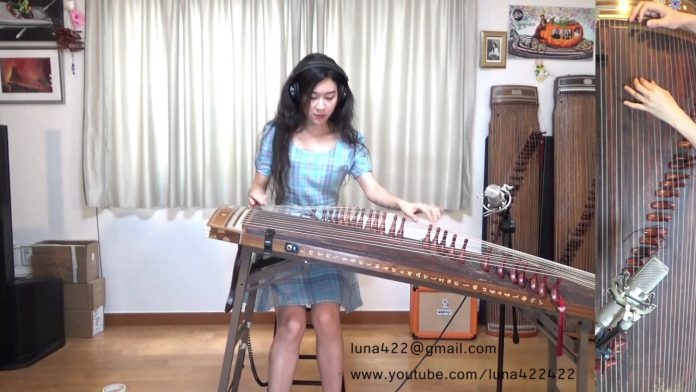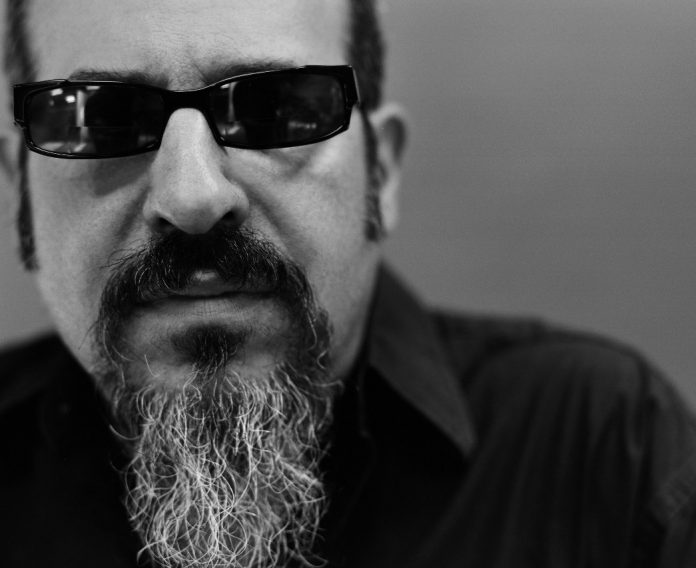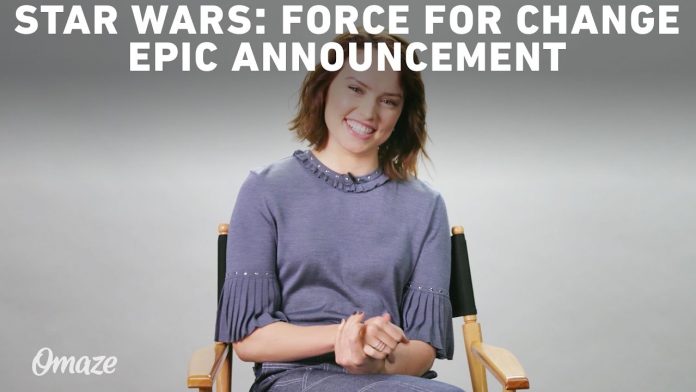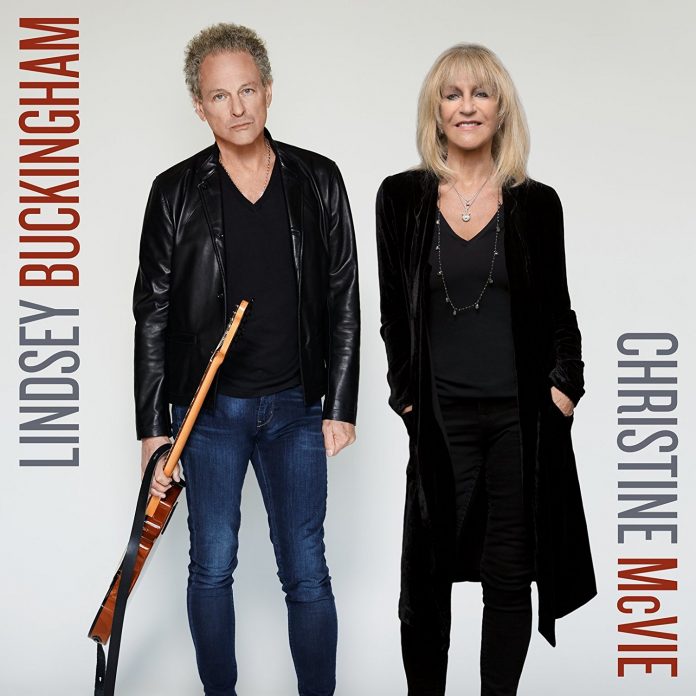Musician Luna Lee’s latest cover of David Bowie’s The Man Who Sold The World seems especially well suited to being played on the classic Korean instrument, the gayageum. It sounds almost as good as Nirvana’s cover. Almost.
30% of Indie Labels Have Given Up Trying Digital Takedowns Of Illegal Music Sites
A2IM and FMC asked independent record labels to respond to a survey asking about their experiences with unauthorized online uses of their sound recordings and their experience with the DMCA. Based on the responses to that survey:
• 87% of the respondents knew of online infringements of their works, even though 30% did not actively search for infringements of their works.
• 65% of the respondents who took action to have the infringing works removed from an online source reported that either it took longer than 24 hours for the infringing work to be removed or that the infringing work was never removed.
• 68% of the respondents reported that an infringing copy of their music reappeared on the same service even after that music had previously been taken down—the so-called “whack-a-mole” problem.
• 65% of those that did not actively search for unauthorized use attributed the reason to not having enough resources to search for infringing activity. In addition, 30% of the respondents also stated that they did not continue searching for infringements because previous enforcement efforts had been unsuccessful.
• The three most frequently cited obstacles faced by the respondents in enforcing their rights online include that (i) they don’t have enough resources to pursue infringement of their works. (ii) they can’t find the contact information to request takedown, (iii) the sites ignore notices or other complaints.
Survey results were submitted to the US Copyright Office as part of their study of Section 512 of the Digital Millennium Copyright Act.
“Sadly, the survey confirms that independent labels are significantly harmed by the unauthorized online use of their music and the unnecessarily tortuous notice and takedown process,” said Richard James Burgess, CEO of A2IM.
“Independent labels play a crucial role in the careers of artists of every genre; many are run by musicians themselves.” said Dick Huey, interim Executive Director of FMC. “As policymakers weigh changes to copyright law, the unique needs of the independent sector and all the diverse music communities they serve must be a central consideration.”
Coachella Radio to Launch on SiriusXM in Advance of Coachella Valley Music and Arts Festival
SiriusXM announced today that it will be the exclusive radio broadcaster of live performances and interviews from the Coachella Valley Music and Arts Festival for the third consecutive year.
In advance of Coachella, SiriusXM’s Coachella Radio, the limited-run channel, will feature music by artists who will be performing at Coachella 2017 leading up to the festival. Coachella Radio will then provide continuous coverage of the festival both weekends with live performances, artist interviews as well as exclusive Coachella news and happenings. Select performances will also air on other SiriusXM channels including Electric Area, Alt Nation, The Spectrum and more. SiriusXM was the first radio broadcaster to broadcast Coachella live in 2015.
“SiriusXM is the go-to place for festival coverage and our exclusive broadcasts from the top music festivals bring our listeners inside these coveted events. This year’s lineup at Coachella is outstanding including Radiohead, Lady Gaga, Kendrick Lamar and Martin Garrix, among others, and we will be there to deliver performances, interviews and reports that can be heard nowhere else. Our listeners nationwide can tune in to catch the hottest musical acts and Coachella’s unmistakable vibe,” said Scott Greenstein, President and Chief Content Officer, SiriusXM.
SiriusXM’s Coachella Radio will launch on channel 18 on Monday, April 10 at 12:00 pm ET and will air through Monday, April 24. The channel will also be available through the SiriusXM App on smartphones and other connected devices, as well as online at siriusxm.com.
Coachella Valley Music and Arts Festival’s 2017 lineup will include Radiohead, Lady Gaga, Kendrick Lamar, the XX, Bon Iver, Lorde, Travis Scott, Future, Justice, Father John Misty, DJ Snake, New Order, Empire of the Sun, Martin Garrix, Porter Robinson & Madeon, Dillon Francis, , ScHoolboy Q, Future Islands, Mac Miller, Gucci Mane, Hans Zimmer, Steve Angello, the Head and the Heart, DJ Khaled, Glass Animals, Two Door Cinema Club, Marshmello, and many more.
For more details about broadcast times go to SiriusXM.com/coachella.
House Of Marley Debuts Brand-First, Sustainably Designed Turntable ‘Stir It Up’ On Earth Day
Breaking into the turntable market with style and superior sound, House of Marley announces the anticipated launch of Stir It Up, the market’s most sustainably-crafted record player on Saturday, April 22, 2017 in honor of both Earth Day and Record Store Day. Designed to recall the golden era of vinyl, during which House of Marley’s namesake Bob Marley was king, Stir It Up elevates retro sentiment to a new level of functionality and sustainable design.
Crafted with a solid bamboo plinth, the turntable pairs earth-friendly materials with high-quality audio. The Stir it Up’s built-in pre-amp and included 3.5mm stereo auxiliary cable allows direct connection to various speakers from the House of Marley collection or any existing in-home audio system.
“We’re introducing a new product category to our collection, allowing us to showcase a wide array of brilliantly designed, eco-conscious capabilities,” explains Director of Product Development Josh Poulsen. “There is no replacement for the feel vinyl delivers, and we wanted to give our customers the perfection of that experience.”
In addition to the natural bamboo, Stir it Up incorporates House of Marley’s own REGRIND™ recycled silicone rubber and the company’s REWIND™ fabric, made of up-cycled hemp and plastic bottles, on the exterior casing. The turntable features a solid metal tone arm for precise sound delivery and a replaceable, ½” mount, audio-technica® cartridge, making the record player easy to maintain and customize. The USB to PC recording capability lets users transform their favorite LPs into MP3s, while the front headphone jack allows for solo vinyl listening.
“The beauty of the Stir it Up lies in its ecological balance. We’re bringing high quality, earth-friendly materials together with innovative design. The result is powerful sound and a stylish look for the new turntable,” states Rohan Marley, Director and Brand Ambassador for House of Marley. “We are amplifying our father’s true sound to the masses.”
Stir It Up will be available for purchase at www.TheHouseOfMarley.com and retail locations nationwide, starting April 22. Pricing: $229.00 standard edition | $249.00 12″ Legend vinyl bundle.
Steve Berlin of Los Lobos on REM, The Tragically Hip and turning down an “offer he couldn’t refuse” from Ray Manzarek
Steve Dawson’s guest on his excellent Music Makers and Soul Shakers Podcast this week is multi-instrumentalist and record producer Steve Berlin. A longtime mainstay of the Los Angeles music scene, Steve Berlin is perhaps best known as a member of Los Lobos, although he is also a sought-after producer and session player. Berlin’s production, arranging and session work includes REM, Sheryl Crow, The Replacements, Faith No More, Dave Alvin, John Lee Hooker, The Tragically Hip, Buckwheat Zydeco and many more. I got to speak with Steve and we discussed his long career, the ins and outs of record production, the legendary 80’s roots/punk scene in LA, turning down an “offer he couldn’t refuse” from Ray Manzarek, creating the masterpiece “Kiko” and much more.
BreakOut West Announces Paul Brandt as Hall of Fame Inductee for the 2017 Western Canadian Music Awards
The Western Canadian Music Alliance is pleased to announce Paul Brandt as the 2017 inductee to the Western Canadian Music Hall of Fame, presented by FACTOR. In addition to this honour, Mr. Brandt will be performing acoustically at the Western Canadian Music Industry Awards Brunch, during BreakOut West’s 15th year of celebrating western Canada’s musical talent.
BreakOut West takes place this year in Edmonton, AB, from September 13-17, 2017, returning to the capital city for the first time since 2008.
Paul Brandt is the most awarded male Canadian country artist in history. His 1996 debut RIAA-certified Gold album Calm Before the Storm went on to sell one million albums internationally, propelled by the #1 single and wedding standard “I Do”. Stateside, his #5 and #1 charting songs “My Heart Has A History”, and “I Do” were the first to chart by a male Canadian Country artist since Hank Snow in 1974. His 11 career albums have spawned hit singles, multiple Album of the Year awards, gold, platinum, and multi-platinum performances. The song “For You” (Brandt/Rosen) was selected to promote the major motion picture We Were Soldiers, and was performed by Johnny Cash and Dave Matthews.
The Canadian Independent Music Association recently celebrated Paul’s reaching Road Gold Status as a top headliner and major box office draw in Canada. As a recipient of the Queen’s Diamond Jubilee award, and numerous other national and regional humanitarian nods, Paul is committed to practically meeting the needs of the poorest of the world’s poor through his Buckspring Foundation. A proud champion of The Trans Canada Trail, Paul is dedicated to creating spaces for respectful discussion and fostering meaningful community through his artistic platform. Paul is currently working in partnership with the Sheldon Kennedy Child Advocacy Centre and The Joy Smith Foundation to create a world-class Anti-Human Trafficking Centre for Excellence in Calgary, Alberta. Also currently serving as Mount Royal University’s “Storyteller in Residence” at the Bissett School of Business, Paul has been working with students to create business and social enterprise projects utilizing the Paul Brandt brand. Recent projects have included work raising funds and awareness for the causes of fighting human trafficking and the crisis of Missing and Murdered Indigenous Women.
Paul has begun writing for a new music project as of January 2017, and BreakOut West is honoured to induct this unstoppable musical force into the Western Canadian Music Hall of Fame.
Review and Photos: Bon Jovi at The Air Canada Centre in Toronto
By Dawn Hamilton
It’s been some time since Bon Jovi has hit a Toronto stage and the fans were showing enthusiastic appreciation for him coming back. There isn’t much I can say about this icon that hasn’t been said before. Bon Jovi was actually the very first concert I ever went to in 1989 with Skid Row opening at the Skydome (yes I am aging myself). It has been 34 years since Bon Jovi was formed and that is a long time for any band to still be around. They have once again sold out arena and is not surprising that it isn’t one night but two nights in a row. It seemed that black leather was the garment of choice for most fans in attendance as I watched the fans filter into the Air Canada Centre.
As the band came on stage they were hidden by a screen with a huge picture of a house on it which is fitting for the tour and new album called “This House Is Not For Sale” . John came out sporting a Toronto Maple Leafs t-shirt which of course won the fans over but he really didn’t need help in this department, these fans have been in love for a very long time, some now even bringing their kids to the concert to pass the torch to the younger generation.
Jon explained the meaning behind the house, it is an old house with strong roots and “these songs over the years are not ours (the band) over the years they are ours” (the fans and band)…. “You have taken these songs and made them your own”. I wish I had the right words to describe the audience and how loud they were the whole night deafening doesn’t seem like a strong enough word. They sang like they wanted Bon Jovi to hear each of them individually.
The stage looked fairly simple but that being said the hydraulic truss and truss towers surrounding the stage were impressive. The huge truss towers surrounding the stage raised and lowered shinning lights on the audience as well as the band. Jon tried to include, as much as possible, the people that were seated behind the stage running around the stage on a ramp built behind the drum kit.
I do have to make mention of his guitarist Phil X. When Jon introduced Phil X the crowd went crazy. Nothing quite like having a home town boy get one of the biggest applause of the night. You could see the smile on Phil’s face from anywhere in the arena. The whole night included songs from his new album “This House Is Not For Sale” such as “God Bless This Mess” and “New Years Day”. Of course he didn’t forget to play his anthems “Bad Medicine”, “Wanted Dead Or Alive” and “Livin’ On A Prayer”.
If you missed the concert last night you may have a very slim chance of getting tickets for another show soon and I highly suggest it. Every one is always in a good mood when Jon comes into town, he makes us all “Have A Nice Day”.
Once again thanks to the crew because without them there is no show!
Review and photos by Mini’s Memories ~ you can contact her at minismemories@hotmail.com
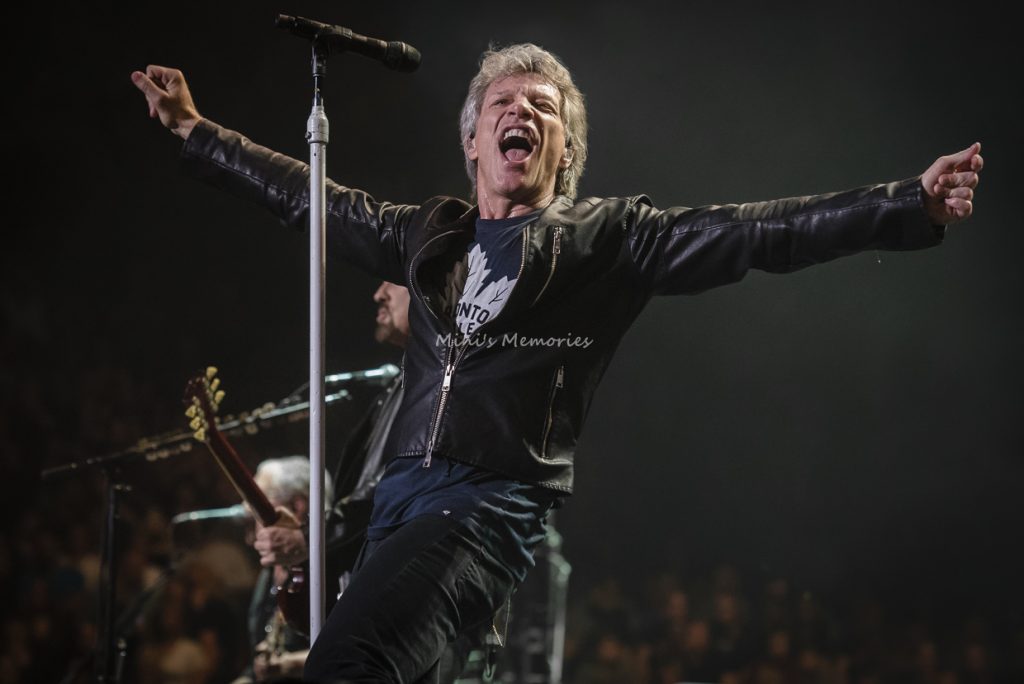
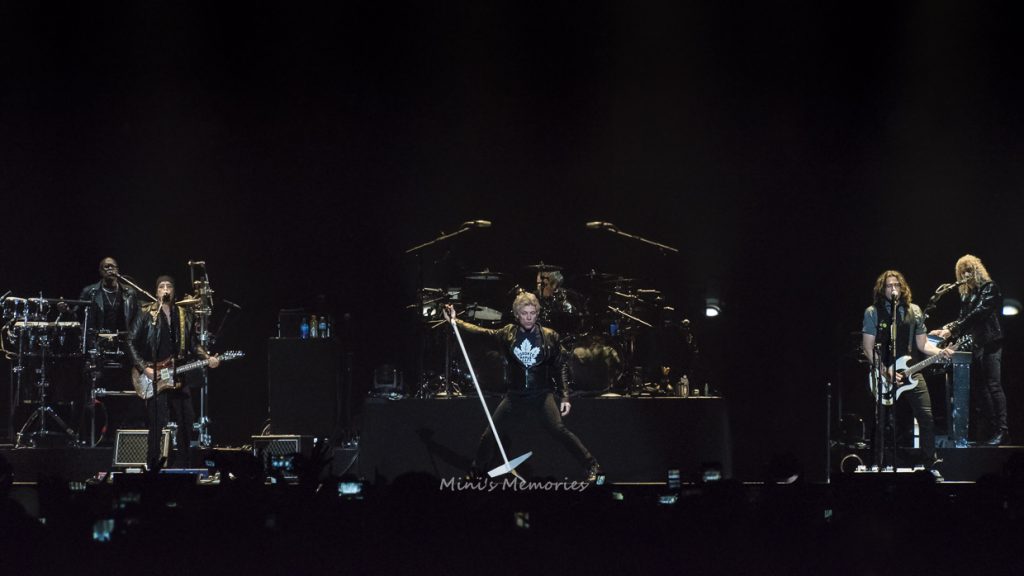
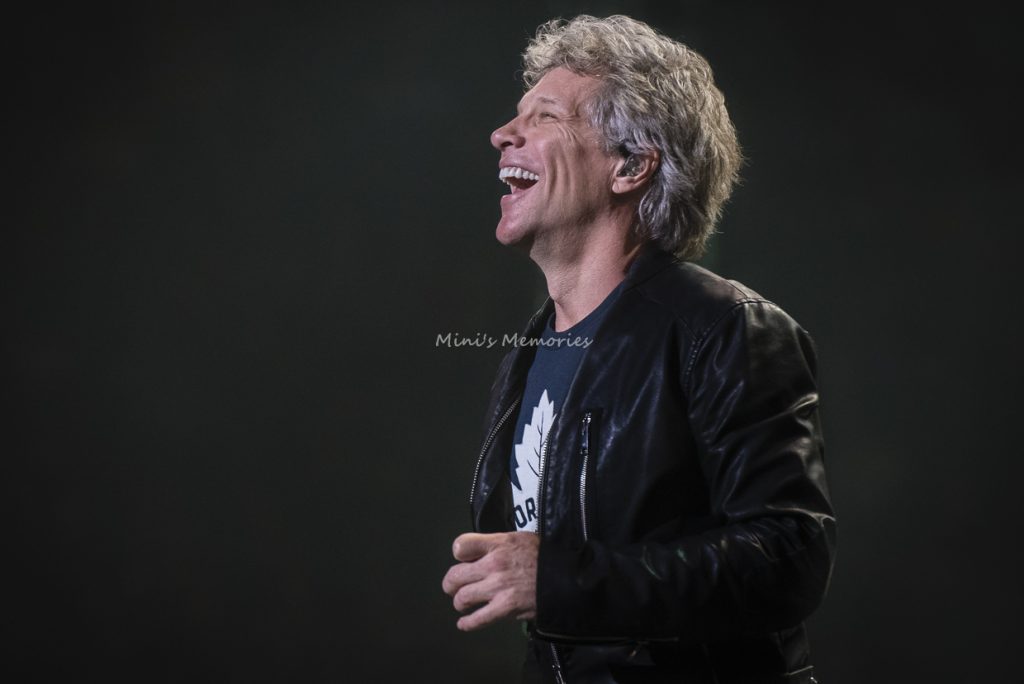

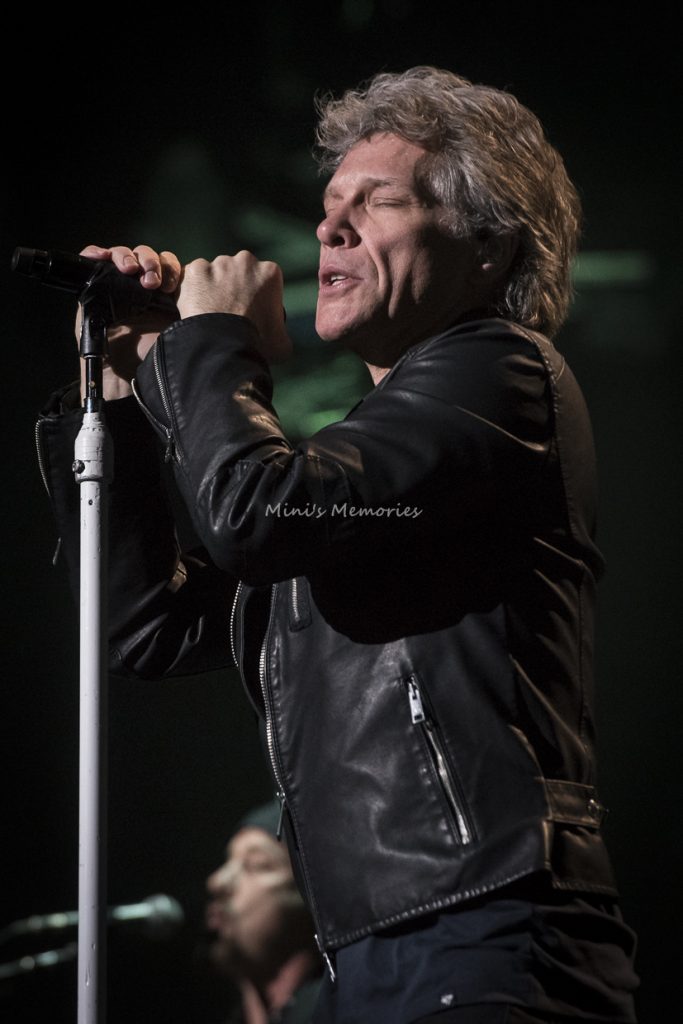
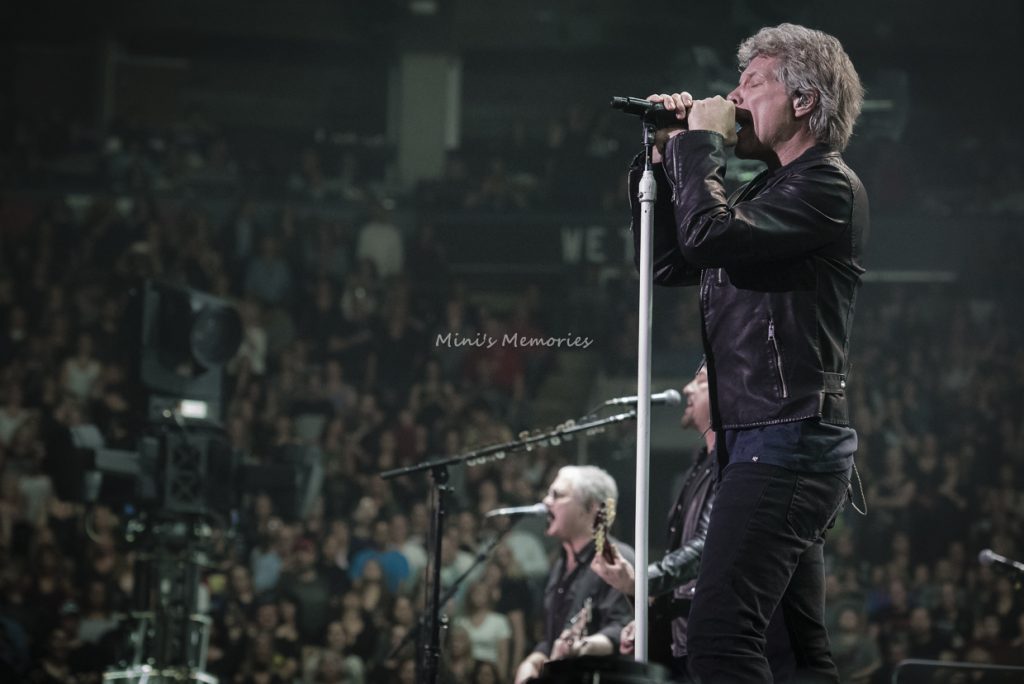


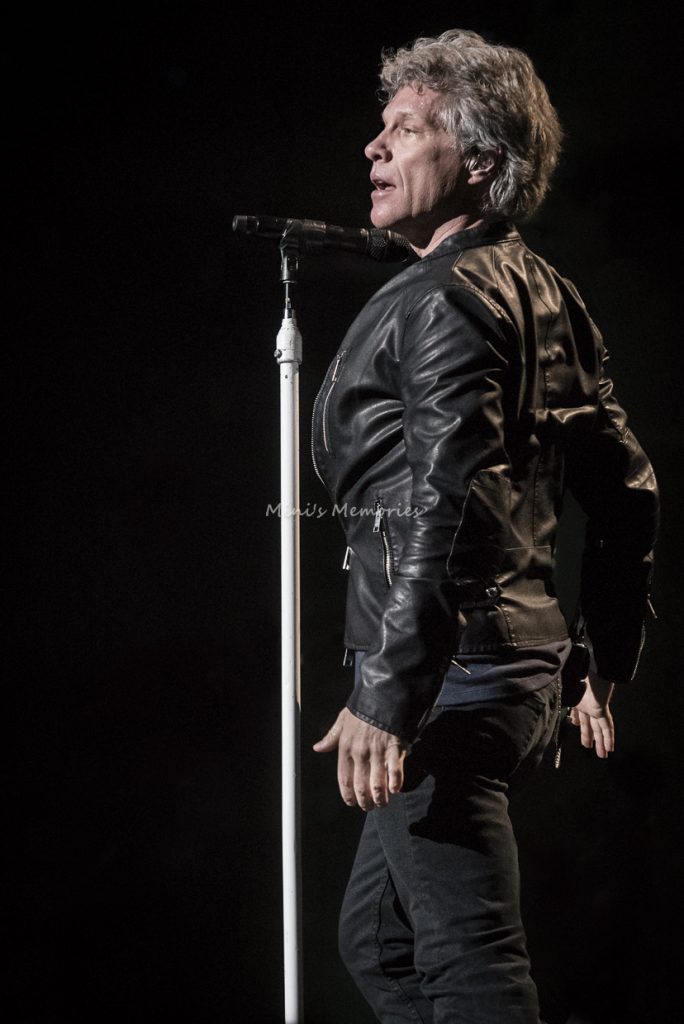
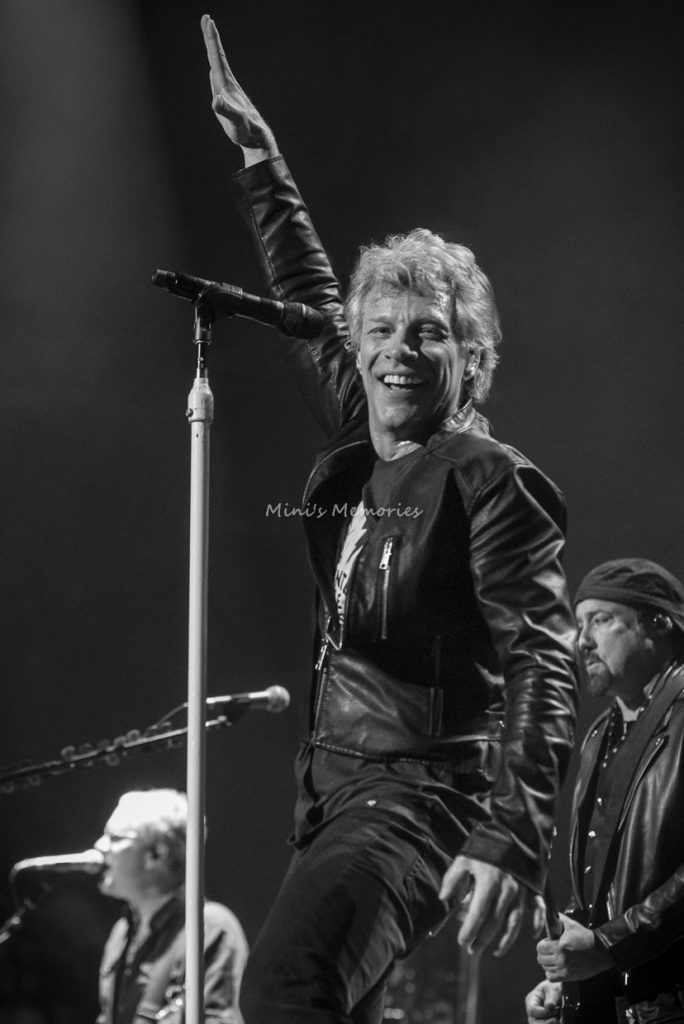
Mark Hamill and Daisy Ridley Announce Star Wars: Force for Change Charity Auction
Mark Hamill & Daisy Ridley announce three once-in-a-lifetime Star Wars experiences that you can win—one of which Daisy can absolutely vouch for. Maybe. Contributors to the charity auction, which benefits UNICEF and Starlight Children’s Foundation, will be put in the running to spend the night at Skywalker Ranch, get tickets to the Star Wars: The Last Jedi movie premiere in Hollywood, and have a chance to appear in the upcoming Han Solo film.
Oh Boy Records to Release ‘John Prine Beyond Words’ Songbook
Oh Boy Records is pleased to announce the release of John Prine Beyond Words, available for purchase via https://johnprine.com on April 18th. Beyond Words includes over 100 photographs from Prine’s personal collection, copies of handwritten lyrics showing the creative process with select commentary, and lyrics with guitar chords for 60+ classic Prine songs. Watch the trailer for Beyond Words here. The book retails for $34.98 and is currently available for pre-order with free shipping (within in the U.S.).
For fans of Prine, the general consensus of this release is it’s about time, as a songbook has been requested at the merch table for years. Personally curated, the book is for both the studied Prine fan and the next generation of songwriters newly discovering his work. Beyond Words is a rare glimpse into the inner workings of the man No Depression Magazine dubbed “the poet laureate of our everyday experience.”
Beyond Words is new territory for both Prine and Oh Boy Records, as this is Prine’s first ever songbook and the label’s first foray into book publishing. Decidedly indie, Oh Boy was founded in 1981 by Prine and his manager Al Bunetta, and is the second oldest artist owned independent label in the country; the oldest in Nashville.
Two time Grammy-award winner, John Prine, is a singer songwriter who, from his eponymously titled first LP release in 1971, has continued to write and perform songs that have become central to our American musical heritage. Classics like, ‘Angel from Montgomery,’ ‘Sam Stone,’ ‘Paradise,’ and ‘Hello in There’ speak to the everyday experience of ordinary people with a simple honesty, and an extraordinary ability to get right through to the heart of the listener.
With his career spanning more than 40 years, Prine continues to perform at sold out shows all over the US, Canada, and Europe. Among the many awards and accolades John has received in recent times include is his 2003 induction into the Nashville Songwriters Hall of Fame, and an Americana Lifetime Achievement Award for songwriting. In 2005, Prine was honored at the Library of Congress by US Poet Laureate Ted Kooser and in 2016 was awarded the prestigious PEN New England’s Song Lyrics of Literary Excellence Award. Prine has become for many, not just a well loved and appreciated songwriter, but a bonafide American treasure.
Lindsey Buckingham and Christine McVie Announce New Album
Longtime members of Fleetwood Mac, Lindsey Buckingham and Christine McVie have joined together to record their first-ever album as a duo. Simply titled LINDSEY BUCKINGHAM/CHRISTINE McVIE, the 10-song album will be released by East West Records this summer, followed by a run of special U.S. concerts. The first single “In My World” will be available this Friday, April 14, on all digital and streaming services.
The album will be available June 9 on CD, LP, and all digital and streaming services. The U.S. tour will begin on June 21st.
The collaboration began three years ago, when McVie rejoined Fleetwood Mac for the group’s “On With The Show” tour. The pair went in to record new material prior to rehearsals for the tour and their natural creative chemistry was reignited. According to Buckingham, “We were exploring a creative process, and the identity of the project took on a life organically. The body of work felt like it was meant to be a duet album. We acknowledged that to each other on many occasions, and said to ourselves, ‘what took us so long?!!’”
Working their natural singer songwriter skills together came easily for the duo. Said Christine McVie, “We’ve always written well together, Lindsey and I, and this has just spiraled into something really amazing that we’ve done between us.”
Sessions for the album took place at The Village Studios in Los Angeles, which is where Fleetwood Mac recorded several of their classic albums, including Tusk. Buckingham and McVie were joined in the studio by fellow bandmates Mick Fleetwood and John McVie, who supplied much of the dynamic rhythmic engine.
LINDSEY BUCKINGHAM/CHRISTINE McVIE
Track Listing
1.“Sleeping Around The Corner”
2.“Feel About You”
3.“In My World”
4.“Red Sun”
5.“Love Is Here To Stay”
6.“Too Far Gone”
7.“Lay Down For Free”
8.“Game Of Pretend”
9.“On With The Show”
10.“Carnival Begin”
| June 21, 2017 | Atlanta, GA | Chastain Park |
| June 23, 2017 | Nashville, TN | Ascend Amphitheatre |
| June 24, 2017 | Raleigh, NC | The Red Hat Amphitheater |
| June 26, 2017 | Vienna, VA | Wolf Trap |
| June 28, 2017 | Boston, MA | Blue Hills Bank Pavilion |
| June 30, 2017 | Philadelphia, PA | Mann Center for the Performing Arts |
| July 2, 2017 | Detroit, MI | Fox Theatre |
| July 3, 2017 | Chicago, IL | Northerly Island |
| July 5, 2017 | Toronto, ON | Budweiser Stage |
| July 19, 2017 | Woodinville, WA | Chateau Ste. Michelle |
| July 21, 2017 | Murphys, CA | Ironstone Amphitheatre |
| July 22, 2017 | Las Vegas, NV | Park Theatre |
| July 25, 2017 | Phoenix, AZ | Comerica Theatre |
| July 27, 2017 | Denver, CO | Paramount Theatre |

